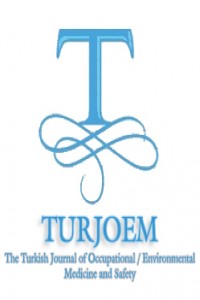Abstract
The World
Anti-Doping Agency (WADA) was established in 1999 as an independent,
international agency. The aim of this agency is creating an environment in
world sport that is free of doping. Its key activities include scientific
research, education, development of anti-doping capacities, and monitoring of
the World Anti
Doping Code (Code). Code is document which provides anti-doping
policies, rules and regulations within sport organizations and among public
authorities around the world. It works in conjunction with five
International Standards. The goals of this standarts are improved consistency
among anti-doping organizations in various areas: testing;
laboratories; Therapeutic Use Exemptions (TUEs); the List of Prohibited
Substances and Methods; and the protection of privacy and personal information.
In Turkey, there is a doping control center called the Turkish Doping Control
Center (TDKM), a Hacettepe University unit The aim of this center is to; enable
young people to do sport healthily, prevent unfair competition in sports, make
doping and other chemical analyses, conduct fundamental and practical
researches and projects, develop new techniques in this regard, collect data in
light of the aims of the center, offer consultation services. Each year WADA
specifies substances and doping methods that are prohibited in sport. It
is therefore important for athletes and health professionals to check what is
permitted.
Keywords
References
- Burcu CAPKIN, Zeliha BAYRAM, Asena Ayse GENC
- Department of Medicines Marketing Authorisation, Turkish Medicines and Medical Devices Agency, Ministry of Health, Ankara, Turkey. Department of Clinical Research, Turkish Medicines and Medical Devices Agency, Ministry of Health, Ankara, Turkey.
Abstract
References
- Burcu CAPKIN, Zeliha BAYRAM, Asena Ayse GENC
- Department of Medicines Marketing Authorisation, Turkish Medicines and Medical Devices Agency, Ministry of Health, Ankara, Turkey. Department of Clinical Research, Turkish Medicines and Medical Devices Agency, Ministry of Health, Ankara, Turkey.
Details
| Journal Section | Articles |
|---|---|
| Authors | |
| Publication Date | February 16, 2017 |
| Published in Issue | Year 2017 Volume: Volume 2 Issue: İssue 1 (1) - 2.İnternational Congress Of Forensic Toxicology |


